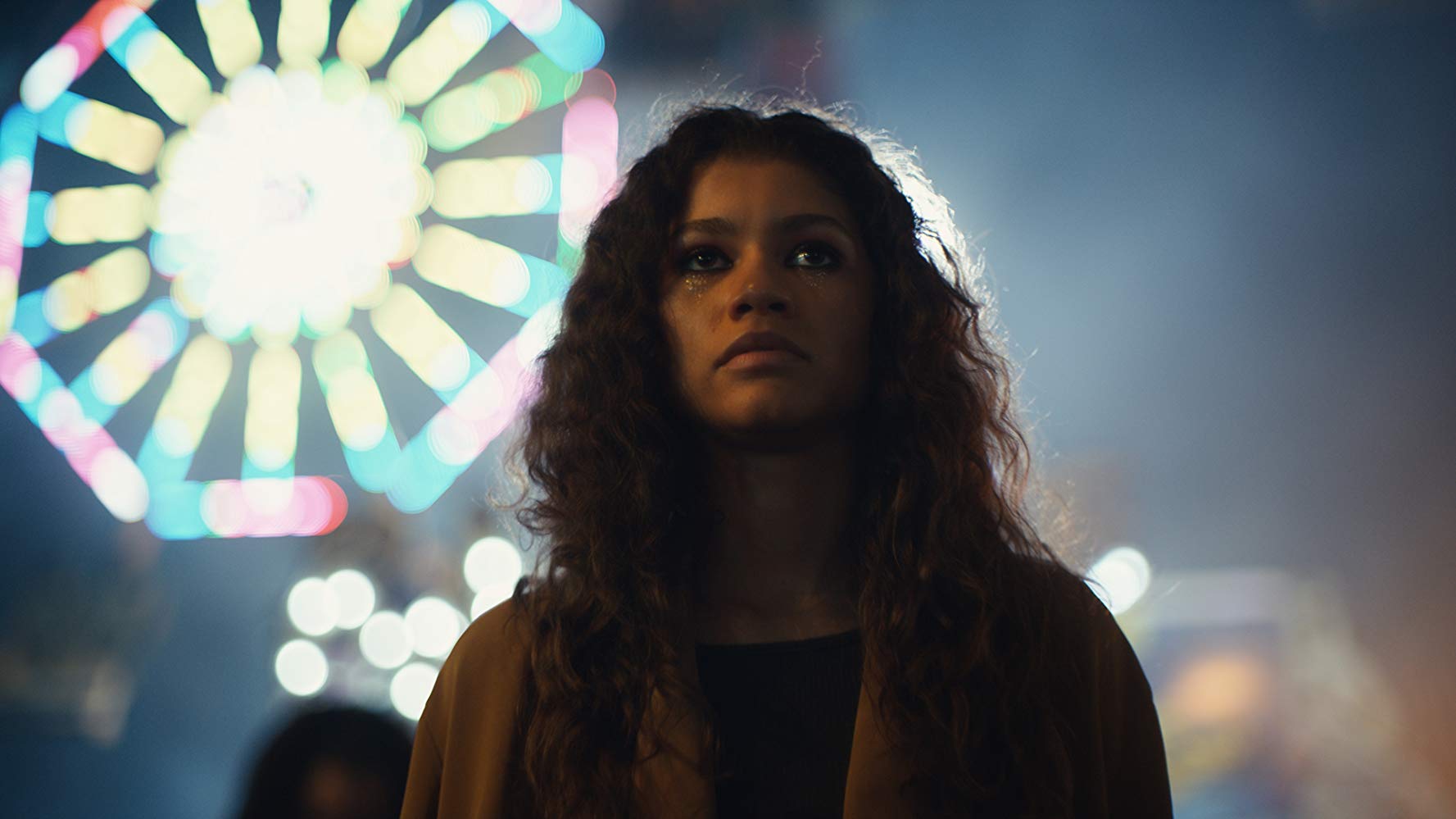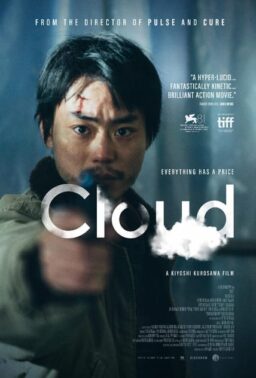HBO will debut its latest provocative series this Sunday night, and I can already imagine some of the reactions—teenagers will covet it; their parents will fear it. Show creator Sam Levinson’s “Euphoria” is a no-holds-barred, in-your-face depiction of high school, a time where developing human beings are mostly responsible for not dying and showing up to class, while they can hide other salacious parts of their lives in their text messages, and feel their way through the adult chaos of drugs and sex. Executive produced by Drake and Future, “Euphoria” wants to be honest and cool AF with character arcs built around its taboos, but while it has plenty of inspired visuals, those values don’t make for durable storytelling once you get to know the show at its core.
Zendaya leads a strong cast, and is the overall storyteller for everyone’s lives. It starts off with the story of her character Rue—born three days after September 11, she’s imagined as a direct product of post-9/11 America, an anxious being just looking for release. We meet her just after she’s gotten out of rehab, and her voiceover clues us into the horrific moment of her recent overdose, where she was discovered by her younger sister and mother. The experience doesn’t stop Rue from slipping back into her destructive habits, and it’s with her character-building that Levinson takes the route of being honest to an addict’s experience, but provocative—in one example, the show explains how Rue is able to pull off urine tests while her mom waits anxiously with her back turned. There’s no sugar coating in “Euphoria,” and even if that means listening to Rue walk back voiceover bits like “I know you’re not supposed to say it, but drugs are kinda cool,” Levinson puts that out there for the sake of being honest more than anything. That quality gets tedious, but the raw nature of her character makes for a standout performance—Zendaya great in this role that lets her run the gamut from tragedy to comedy and back again.
The neon-lit, hyperactive-camera world of “Euphoria” has other beings with compelling lives: a new kid in town named Jules (Hunter Schaefer), who quickly becomes Rue’s friend while having her own sexual experiences and having recently transitioned into a woman; a hulking mass of repressed sexuality named Nate (Jacob Elordi), who is possessive of his cheerleader on-and-off-again girlfriend Maddy (Alexa Demie); Kat, who learns about the power she can have with sex online; the developing relationship between high schooler Cassie (Sydney Sweeney) and college freshman McKay (Algee Smith), which starts after he becomes infatuated with her nudes. It’s a testament to these performances, and the show overall, that you can keep track of all of these characters, along with the ones that are in the peripherals. “Euphoria” doesn’t have a strong sense of world-building, so much as a roster of dynamic faces that it’s easy to remember.
Levinson previously directed the oppressively woke 2018 “Assassination Nation,” a movie that begins with a laundry list of trigger warnings it then proceeds to fire off. His mission here is similar: representation, of putting these ideas and people onto the screen in as flashy a way possible, but he’s not interested in making them very challenging. These kids are all complicated, as is the world they live in, and yet their storylines are straight-forward. These lives, like much of the show, do not hold much surprise after Levinson introduces them by sharing their secrets (which I am hesitant to reveal here).
When it comes to dosage, “Euphoria” doesn’t lend itself easily to binge-watching, so the HBO release of one episode a week might work. I can see “Euphoria” becoming an event for some, part of its spectacle directly related to the shock value of its sexual content, the way that “Game of Thrones” recently garnered fascination and discussion with its violence and sexual dynamics. The latter is going to be relevant here, as “Euphoria” pushes against more acceptable ideas of nudity (with its images of penises, for example) and then steps back from the idea that the show concerns high schoolers, so it’s about underage sexuality, basically. Like “Assassination Nation,” Levinson brandishes dick pics and nudes as a plain fact of modern life. That’s the kind of edge the story often lives on, especially with a subject that fascinates its characters—sex—and it so obviously seems like “Euphoria” presses those buttons for the sake of doing it.

But you might be too dazzled by the visual storytelling to notice, or at least Levinson and cinematographer Marcell Rev hope that’s the case. There are certain shots and cuts here that often defy explanation, and add a sense of wonder. “Euphoria” is directed with constant audaciousness by directors Augustine Frizzell and Levinson, who work overtime with cinematographer Marcell Rev to give their characters an edgy introduction to a scene, or in one instance, an “Inception“-like drug trip for Rue. There are transitions and montages that cover a passage of time in a way that I’ve never seen before (going in and out of Nate’s mirror, aging him from a boy into a man), and every party scene has a Zion-esque quality to them, a mass of extras crowded in a house, filmed with precision.
The shot that “Euphoria” loves the most is one that seemingly rushes from across the room up to a character’s face (AKA a dolly shot), and the series uses it a comical amount, so often that it warrants being singled out. It’s a huge part of the show’s in-your-face attitude, to bring viewers up close and personal with its different figures, giving them a grandiosity. But these shots are used so willy-nilly that they lose their power, and so too does the show. By the time “Euphoria” emulates the famous shot in “Wings” for a moment with Kat, it’s not for the purpose of telling story so much as the most indulgent manner to introduce other people sitting in a cafeteria before showing us her face.
If any of the current high school-themed movies like “Booksmart” have taught me anything, it’s that being a teenager in the modern age of no privacy and only irony is all about the desire to simply be cool—to express oneself in a way that stands out, whether the collective statement adds up to anything or not. “Euphoria” embodies that cinematically, and while it can make for something that feels like it comes from a place of no rules, it also makes for an exhausting and superficial TV viewing experience.
Three episodes watched for review.












